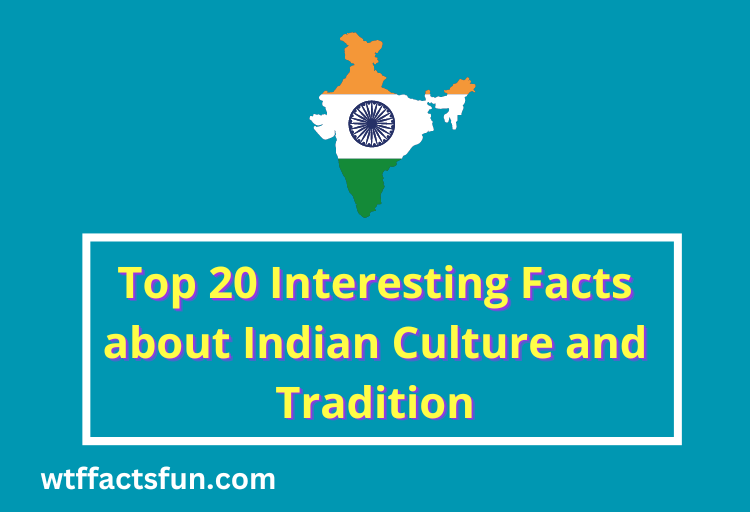
Table of Contents
Facts about Indian Culture and Tradition
Facts about Indian Culture and Tradition: India is a country located in South Asia. It is the seventh-largest country in the world by area and the second-most populous country, with over 1.3 billion people. India is known for its rich history, diverse culture, and bustling cities.
India is a federal republic with a parliamentary democratic system of government. The President of India is the head of state, while the Prime Minister is the head of government. India has a mixed economy, with agriculture, manufacturing, and services being the major sectors.
India has a rich cultural heritage that has been shaped by its long history and diverse religious and ethnic groups. Hinduism, Buddhism, Jainism, and Sikhism all originated in India, and there are also significant populations of Muslims, Christians, and other religious groups.
Indian culture and tradition are diverse and rich, with a long history and many unique customs and practices. Here are some interesting facts about Indian culture and tradition:
- India is known for its diverse religions and faiths. Hinduism, Buddhism, Jainism, Sikhism, Islam, Christianity, and Zoroastrianism are all practised in India.
- Indian classical dance forms include Bharatanatyam, Kathak, Kuchipudi, Manipuri, Mohiniyattam, and Odissi.
- Indian cuisine is famous for its use of spices and herbs and is known for dishes like biryani, butter chicken, samosas, and dosas.
- Yoga originated in India over 5,000 years ago and is now practised worldwide.
- The Indian wedding ceremony is a complex and elaborate affair, with many traditions and rituals that vary by region and religion.
- India is home to many festivals and celebrations, including Diwali, Holi, Eid, Christmas, and Durga Puja.
- Indian art forms include painting, sculpture, music, and theatre. The ancient Indian text Natyashastra is considered the first systematic study of performing arts in the world.
- The Indian education system dates back to ancient times, with institutions like Nalanda and Taxila attracting scholars and students from all over the world.
- The Indian economy has a long history of trade and commerce, with the Indus Valley Civilization being one of the earliest known trading civilizations in the world.
- The game of chess originated in India and is known as chaturanga in Sanskrit.
- The Indian film industry, also known as Bollywood, is the largest film industry in the world in terms of production and global reach.
- The Indian textile industry has a rich history, with famous fabrics like silk, cotton, and cashmere being produced in India for centuries.
- India has a long tradition of ayurvedic medicine, which is a holistic system of medicine that emphasizes the importance of maintaining a balance between mind, body, and spirit.
- Indian classical music is known for its complex rhythms and improvisation. The two major forms of Indian classical music are Hindustani and Carnatic.
- The Indian caste system is a complex social hierarchy that has been in place for thousands of years. Although officially abolished, it still has an impact on Indian society today.
- Indian literature includes some of the world’s oldest and most influential texts, including the Vedas, the Mahabharata, and the Ramayana.
- The Indian space program is one of the fastest growing in the world, with missions to the moon and Mars in recent years.
- Indian architecture is known for its intricate carvings and use of symmetry, with famous examples like the Taj Mahal and the Ajanta and Ellora caves.
- Indian traditional attire varies widely by region and culture, with sarees, salwar kameez, dhotis, and lungis being popular styles.
- The art of mehndi, or henna tattooing, is a popular tradition in India, particularly during weddings and other celebrations.
Read also: